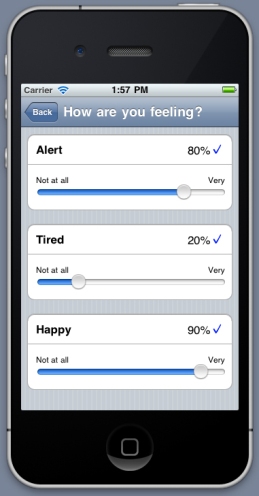News & Events
Expert on traumatic and job-related stress tackles middle school
Psychologist Teresa McIntyre leads research project on middle school teachers’ trepidations
After 17 years of researching traumatic stress in military and civilian war survivors and job stress in the medical profession, psychologist Teresa McIntyre decided to study another high-risk occupation: middle school teachers in seventh and eighth grade.
 Teresa McIntyre, a research professor in the department of psychology, University of Houston.
Teresa McIntyre, a research professor in the department of psychology, University of Houston.
“Teaching is a highly stressful occupation,” said McIntyre said, a research professor in the department of psychology and the Texas Institute for Evaluation, Measurement and Statistics (TIMES).
“Teacher stress affects various aspects of teacher health and may influence how effective teachers are in the classroom, with potential consequences for their students’ behavior and learning,” she said. “I started to research the literature on stress and teachers in the U.S. and found very little information. There was no comprehensive study of teachers’ stress or even an audit of the percentage of teachers who are stressed. I saw a void here and a need to study.”
McIntyre serves as primary investigator for a $1.6 million grant funded by the Institute of Education Sciences (IES), U.S. Department of Education, titled, “Using Longitudinal and Momentary Analysis to Study the Impact of Middle School Teachers’ Stress on Teacher Effectiveness, Student Behavior and Achievement.”
The research will begin this coming school year and track 200 seventh-and eighth-grade social studies, science or math teachers in 20 middle schools in the Houston Independent School District (H.I.S.D.) and thousands of students over a three-year period.
The research team intends to identify predictors and outcomes of job stress in middle school teachers, linking teacher stress to student behavior, as well as achievement via teacher effectiveness. The results of the data can be used to guide further development of interventions to mitigate teacher stress and, consequently, improve teacher effectiveness and student behavior and learning.
“Middle school is probably the most difficult level to teach because student-teacher interactions are more difficult during this time, and this kind of difficulty in teacher-student interactions is a major source of stress for teachers at this level,” McIntyre said. “For students it’s a time of adolescence and many changes developmentally, and that is going to affect the dynamics of learning, as well as the social relationships and climate in the classroom. It’s going to affect the teachers as well. Our premise is that if the teacher is stressed, their behavior will be different with students, and they will perform differently with students.” McIntyre conducted a pilot study in the greater Houston area in 2010 that indicated that at least one third of middle school teachers may be significantly stressed.
The research team will combine an innovative multi-method approach to assessing stress and teacher effectiveness, including:
- ecological momentary assessment or real-time assessment
- concurrent physiological measurements that will monitor blood pressure and heart rate
- in-classroom observational ratings
- self-reporting in a Teacher Stress Diary using an iPod Touch platform
- teacher effectiveness ratings recorded on an iPad
Data will be collected on students in the teachers’ classroom using teacher stress diaries, archival school records and observational ratings. The study’s software programs are being developed by Sean Woodward at TIMES. The statistical methodologies required to analyze the intensive longitudinal data generated by real-time assessment will be provided by TIMES and Department of Psychology faculty member Paras Mehta.
“With this study we will be able to get a more dynamic picture of how teachers respond to stress in real time,” McIntyre said. “Teachers will be able to report their emotions – positive, negative; how their cognitive functions are affected by stress; and what’s happening at the moment in terms of social interactions, social conflict, demands on the job, the time pressure and whether they feel they are in control of their situation. They also report on effectiveness in instruction and classroom management, and on their student’s behavior in the classroom.”
 Teachers use the i-Pod Touch to monitor their stress at work.
Teachers use the i-Pod Touch to monitor their stress at work.
McIntyre notes the larger contribution of the study is to take the pulse of the educational system and see what’s happening in challenging economic times and to evaluate what impact this has on teachers and students.“The study addresses a key issue in contemporary education: how to improve teacher quality in the face of increasing demands in the education system,” she said. “It is all about supporting teachers, students and school administrators at a time of depleted resources.”
The results of the study may be used to guide further development of interventions to mitigate teacher stress and, consequently, improve teacher effectiveness and student behavior and learning. The data collected will be useful for school administrators and principals to know, such as what factors are causing teachers to be more stressed and less effective, and what resources can be arranged to change that trajectory into a positive one.
The research project is a collaborative effort that also includes the University of Houston-Clear Lake (UH-CL), the University of Pittsburgh School of Medicine, and the Houston Independent School District (H.I.S.D.). Researchers include Paras Mehta, David Francis, Angelia Durand and Pat Taylor (psychology and TIMES) and Scott McIntyre (UH-CL). UH advisory board members are Christiane Spitzmueller and Qian Lu (psychology) and Chris Wolters (educational psychology). The consultant is Dr. Thomas Kamarck, University of Pittsburgh.
- Melissa Carroll